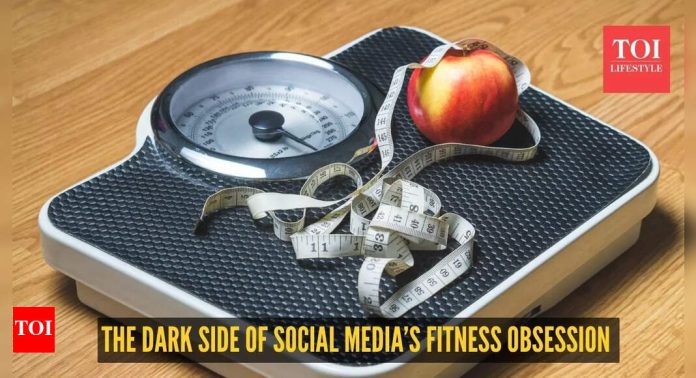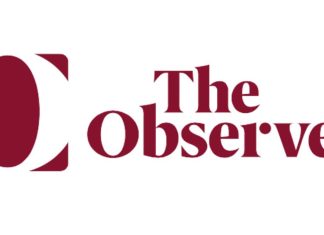The world of health and fitness on social media has become a battleground of obsessions, carbs, protein, fiber, fasting, body recomposition, or the latest “10,000-step” challenge. There are influencers who swear by tape measures instead of scales, those who flaunt shredded abs as “motivation,” and those who document the loose skin left behind after extreme weight loss.In this noisy ecosystem of advice, metrics, and moral judgment, 26-year-old Ethan Benard found himself both a participant and a symbol of the culture itself.
A former gamer from western Michigan, Ethan is 6-foot-5 with a shock of red hair and a disarming awareness of his size. It began as a personal effort to reclaim his health soon transformed into something much larger, a public narrative followed by more than a million people across platforms. His weight loss journey, featured in The Washington Post, now sits at the intersection of social media performance, corporate sponsorships, and the brutal psychology of public accountability.
When weight loss becomes performance
Ethan’s story, as told to The Washington Post, is not that simple, he was always about 200 pounds. His parents tried everything- switched to unprocessed foods, threw their microwave, and went from one specialist to another. But nothing worked, because while he was eating healthy, he also eating too much. However the worse was yet to come, at 21, he contracted COVID-19, was placed on a ventilator for ten days, and spent 61 days in the hospital. The virus did not have a permanent damage but the stress of lying immobile for that long under 600 pounds of weight was. Before his illness, he made a living as a Twitch partner, streaming video games online. Afterward, nerve damage left his dominant arm nearly useless. “I lost and gained the same hundred pounds three separate times,” he said. The cycle of loss and regain became his reality until 2025, when he saw an interview with a celebrity trainer recommending 10,000 steps a day. “I could probably do that,” he thought.On May 5, he uploaded a simple video: “If I can inspire at least one person on this journey, I think it will be worth it.”His daily uploads soon became rituals of self-surveillance. Lunch-making videos, clips of him completing his 10,000 steps in an unfinished basement, updates from gym sessions, and “non-scale victories”, like choosing a plain Subway sandwich instead of the full meal.“There’s nothing terribly unique or innovative about Ethan’s content,” The Washington Post noted, and yet, it worked because he was radically transparent. The visibility brought attention from companies and celebrities. An actor from the CSI franchise introduced him to a personal nutritionist. Meal-prep brand MegaFit began sending him chicken-quinoa power bowls. When he mentioned drinking Jocko Fuel protein shakes (co-owned by actor Chris Pratt), the company reached out, and eventually offered him sponsorship so that “losing weight could be his full-time job.”But with sponsorships came pressure. Each week, his “weigh-in” videos became ritualized theater, excitement before, dread during, and often guilt after. “It’s weekly weigh-in, baby!” he’d shout, before stepping onto the scale with a terrified expression. He later admitted, “I wasn’t ever sure that I had lost enough weight to make everyone happy.”He confessed that the 24 hours before weigh-ins were “nightmarish.” He would fast, stay up all night, and then overconsume once the recording was done. “I’ve been stuck right around the 500-pound mark for two months now … and I don’t know why the scale isn’t effing moving,” he told followers. “I’m sorry that the scale is not meeting everyone’s expectations; it sure as hell is not meeting mine, either.”
The noise of a million opinions
Ethan’s feed became a study in modern wellness contradictions, flooded with fitness advice, pseudo-science, and unsolicited commentary. “I have so many professionals telling me, do this, do that, do this, do that,” he said in frustration. Some followers offered genuine help, but others were cruel. Fat-shaming comments poured in, ridiculing his progress and questioning his commitment.He described the mental toll of constantly thinking about what he ate and how others would judge him for it. “The amount of time Ethan had to spend thinking every day about what was going into his body and how he would be judged for it would overwhelm anyone,” wrote The Washington Post.Beneath all the viral success, brand deals, and supposed “motivation,” what emerged was a haunting question: when you turn your healing into content, who is it really for? The audience that cheers you on, or the algorithm that rewards your pain?Ethan dreams of one day hosting a talk show, interviewing people about their lives. It’s an ambition that, in many ways, mirrors what he’s already doing, sharing raw humanity with strangers who see themselves in his struggle.Because ultimately, Ethan’s story isn’t about weight loss. It’s about visibility, the way we watch others to make sense of ourselves.









